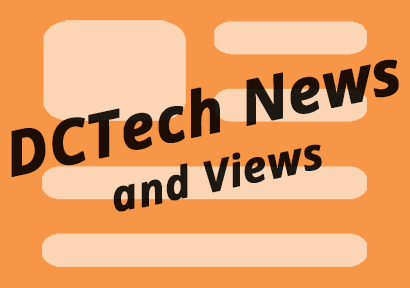Apple Says No Backdoor in iOS
 Recent research by systems security researcher Jonathan Zdziarski has highlighted an interesting and troubling “backdoor” to Apple’s operating system. Utilizing a number of novel forensics techniques, he has shown how third parties can potentially gain access to users’ personal data. Mr. Zdziarksi has not stated that the NSA has actually used the so-called backdoor only that the potential is there.
Recent research by systems security researcher Jonathan Zdziarski has highlighted an interesting and troubling “backdoor” to Apple’s operating system. Utilizing a number of novel forensics techniques, he has shown how third parties can potentially gain access to users’ personal data. Mr. Zdziarksi has not stated that the NSA has actually used the so-called backdoor only that the potential is there.
There doesn’t appear to be much doubt that there is a way into iOS that can leave users’ personal data vulnerable, but Mr. Zdziarski and Apple are using somewhat different terminologies to describe it. In part, Apple’s response reads as follows:
We have designed iOS so that its diagnostic functions do not compromise user privacy and security, but still provides needed information to enterprise IT departments, developers and Apple for troubleshooting technical issues.
So, what Mr. Zdziarski and others are describing as a “backdoor”, Apple is calling a “diagnostic function”. There’s little doubt that Apple’s original intent was to permit access for diagnostics but it appears Mr. Zdziarski is saying that this feature can be exploited by unauthorized snoopers. You decide.
Goodbye Facebook, Hello Pinterest
 According to a recent survey conducted by ACSI (American Customer Satisfaction Index), consumers’ level of satisfaction with social media websites is ranked among the very lowest. Only three industries scored worse in the satisfaction index with Internet Service Providers topping the list, followed by Subscription TV, then Airlines, and Social Media coming in fourth.
According to a recent survey conducted by ACSI (American Customer Satisfaction Index), consumers’ level of satisfaction with social media websites is ranked among the very lowest. Only three industries scored worse in the satisfaction index with Internet Service Providers topping the list, followed by Subscription TV, then Airlines, and Social Media coming in fourth.
Of the major social sites, Facebook and its business-focused counterpart LinkedIn rank the lowest in user satisfaction, and Twitter didn’t fare much better. According to the ACSI report, consumers favorite social site is now Pinterest.
Consumers have a new favorite in social bookmarking site Pinterest, which climbs 6 percent to an ACSI score of 76. The site has made steady gains with pinners over the past three years, but improved features and search functions now push Pinterest to the top of the social media category for the first time. <source>
Geo-blocking Doubles Pirate Bay’s Traffic
 As one of the longest surviving and most popular resources for shared content, the Pirate Bay epitomizes peer to peer file sharing worldwide. It is also one of the most heavily censored sites on the web, thanks largely to the efforts of the entertainment industries who, with the assistance of collaborating governments, have made it their mission to do all that they can to prevent users accessing Pirate Bay to share movies, videos, TV shows, music, games and other content.
As one of the longest surviving and most popular resources for shared content, the Pirate Bay epitomizes peer to peer file sharing worldwide. It is also one of the most heavily censored sites on the web, thanks largely to the efforts of the entertainment industries who, with the assistance of collaborating governments, have made it their mission to do all that they can to prevent users accessing Pirate Bay to share movies, videos, TV shows, music, games and other content.
Despite all those efforts, Pirate Bay’s traffic has doubled in recent times, possibly proving the old adage that all publicity is good publicity.
In recent years the entertainment industries have pushed hard to get The Pirate Bay blocked in various countries. Despite these efforts the notorious torrent site has managed to double its visitors. The United States remains the most popular traffic source while roughly 9% of all users access the site through a proxy. <source>
Google & Apple Told to Stop Misrepresenting ‘Free’ Apps
 In this week’s ‘it’s about time’ story, Europe’s Consumer Protection Cooperation (CPC) Network, in association with consumer protection bodies in its member states, is putting pressure on Google and Apple to stop misleading consumers about so-called free apps.
In this week’s ‘it’s about time’ story, Europe’s Consumer Protection Cooperation (CPC) Network, in association with consumer protection bodies in its member states, is putting pressure on Google and Apple to stop misleading consumers about so-called free apps.
Incidents of in-app purchasing by kids have been well documented, and the CPC is now demanding that, among other requirements, consumers are adequately informed about the payment arrangements for purchases, and do not have money taken through default settings without giving their explicit consent.
According to an EC press release, Google’s reaction has been positive with the company saying it will make a number of favorable changes by the end of September 2014. On the other hand, while agreeing that the EC’s concerns require addressing, Apple has made no firm commitment or offered any time-frame on possible changes. <source>
Verizon Throttling Netflix Traffic Despite Fastlane Payment
![]() Netflix has recently begun paying extra to Verizon to improve network performance and carry its video streams at higher bandwidths, but so far Verizon has not kept it’s end of the bargain by providing an improved service. Not only has Verizon’s performance dramatically worsened, the company has continued to try and pass the buck on to Netflix, claiming that the online streaming giant is deliberately degrading performance by attempting to push data down specific congested Verizon pipes.
Netflix has recently begun paying extra to Verizon to improve network performance and carry its video streams at higher bandwidths, but so far Verizon has not kept it’s end of the bargain by providing an improved service. Not only has Verizon’s performance dramatically worsened, the company has continued to try and pass the buck on to Netflix, claiming that the online streaming giant is deliberately degrading performance by attempting to push data down specific congested Verizon pipes.
Unfortunately, a growing body of evidence suggests this just isn’t true. There is a major problem with Verizon’s explanation which suggests Netflix’s version is nearer the truth – the fact that Verizon has a major conflict of interest, it sells its own video-on-demand and pay-per-view channels, whereas Netflix doesn’t. Arguing that Netflix would hurt its own performance to make Verizon look bad, when it’s Netflix customers who are likely to cancel in retaliation, just doesn’t hold water. <source>
- Read this story in full here: Verizon caught throttling Netflix traffic
